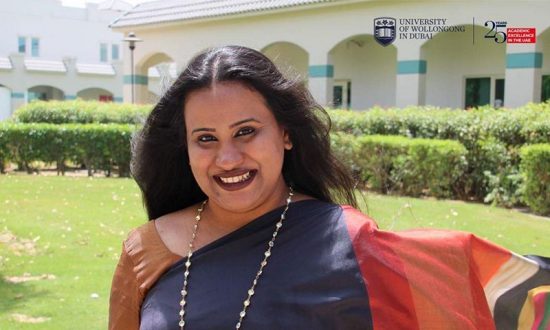Dr Zeenath Reza Khan is an Assistant Professor of Cyber Ethics and Head of the Technology and Integrity in Academia and Beyond Research & Learning Forum at Faculty of Engineering and Information Sciences, University of Wollongong in Dubai. She has been teaching in the Faculty of Engineering and Information Sciences at the university since 2001.
Why Higher Education Institutions Should Focus on Academic Integrity and Build a Culture of Integrity
Academic integrity is the absolute foundation upon which not only the education sector, but the entire society stands. Having values of honesty, truthfulness, courage, fairness, trustworthiness, respect and responsibility are crucial to a person’s character so that they are able to contribute to the greater community in a sustainable and constructive manner.
However, often, academic integrity does not make the cut into discussions about higher education. Why? It is downright uncomfortable. It is always easy to look the other way and pretend there isn’t a problem to talk about. It is always easy to make outrageous claims of having curbed the problem so completely that it is a non-issue. Most often than not, academics think admitting that their students have engaged in some kid of academic misconduct reflects their teaching. Most often organizations steer clear of acknowledging there is a problem because somehow, they feel it taints their prestige, status and maims the value of their degrees.
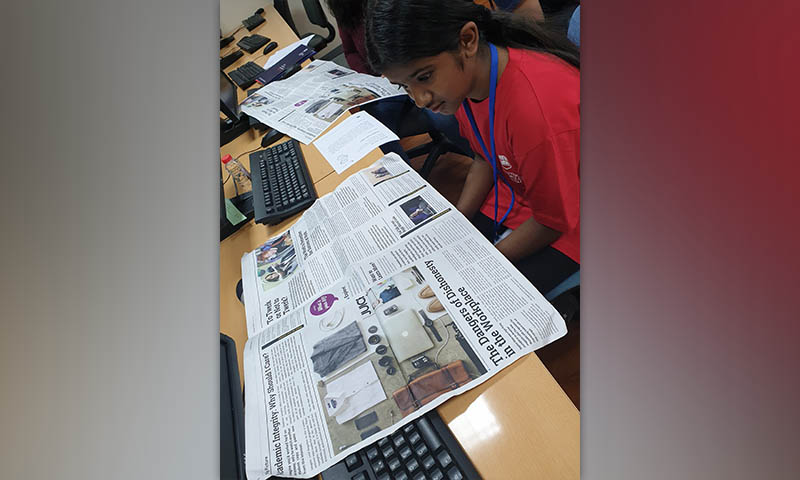
That may have been true in the past and still for a select few. Universities globally have woken up to the very real threat that is academic misconduct. From spending hundreds of dollars on research to setting up centres of excellence to rolling out man hours on training both faculty and students, universities around the world are acting.
The past decade alone has seen its share of incidents that have rocked university campuses from United States of America, to United Kingdom to Australia, forcing campuses to take notice. Who can forget the video footage of parents scaling the walls of exam halls in Bihar, India when attempting to pass on exam answers to their wards? Or the recent admission scandal in the US that splashed the headlines globally? While scandals act as the last push through the door, there is already tremendous focus and attention on academic integrity that enough action and initiatives have rolled out in classrooms, exam halls and executive board meetings everywhere.
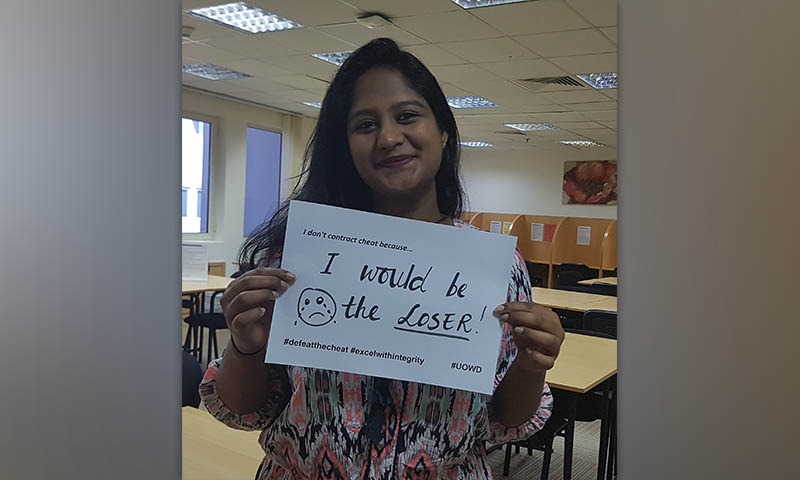
Why is academic integrity so important and what role does it play in the higher education scene in the Middle East?
Knowledge without responsibility, courage and fairness is dangerous. Skills without respect, truthfulness and trustworthiness is life-threatening. As educators shaping young minds, it is imperative that faculty understand the role they play in instilling these values in their students. Universities are not merely “educating” students in a particular area of study. They are paving the way for individuals who are not only independent and able to pull off a successful career but innovate and sustain a career that benefits the society with their loyalty, courage, honesty and fairness.
Academic misconducts are not necessarily intentional or malicious. Some are, most are not. Some are simply unaware of the acceptable practice when using someone else’s work in an assignment, perhaps because they come from an education system that preaches rote learning and reproducing what has been taught. Students engage in misconducts for a variety of reasons such as poor time management, pressure from family to perform well, poor prior knowledge of the subject matter, peer pressure, and lots more.
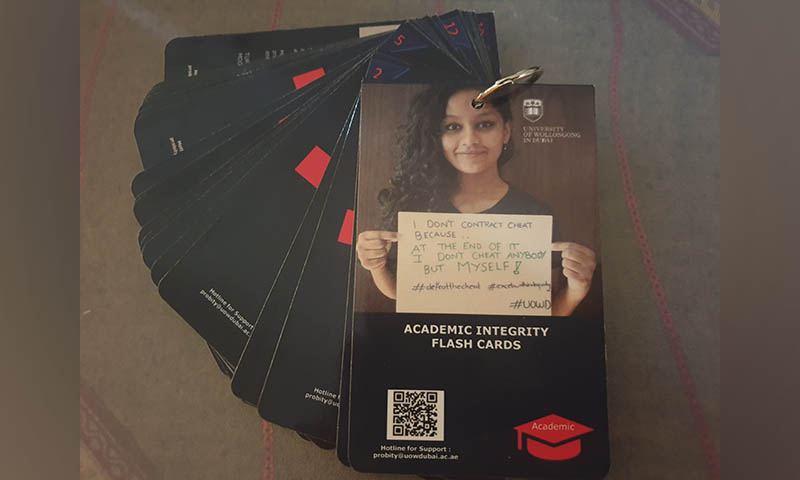
In the absence of integrity, students may engage in a variety of actions that are deemed as academic misconduct. Cheating during an exam by looking over one’s shoulder, using prohibited material or paying someone to sit for the exam or complete an assignment are all cheating. When students try to impersonate others, or falsify data in research, that is cheating. If students take others’ work and try to pass of it in full or in part, that is cheating.
But this is all in the classroom. What happens when students take these values into the real world and apply them to everyday decisions?
If unchecked, without intervention or rehabilitation, the consequences can be dire. When taking someone’s work and claiming to be theirs, students learn to “take” what belongs to others – not just words, but property, intellectual or otherwise, without permission. If students use unfair resources or methods during exams, they learn they can find “unfair short-cuts” to getting what they want, without having to work hard. When a student changes some numbers in a class experiment or interviews a brother and passes it as a field interview of a manager for a report, they learn how easy it is to manipulate data for personal or business gain.
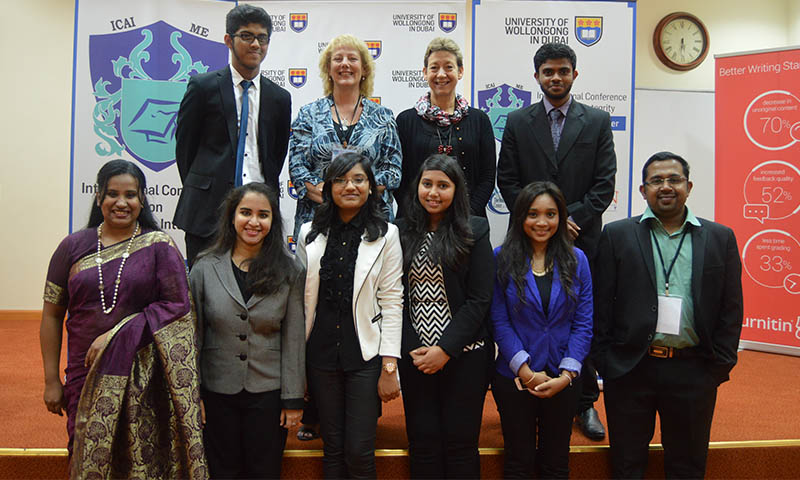
Higher education institutions and faculty are in a unique position to address misconducts, rethink pedagogy and assessment design and raise awareness during a student’s learning journey with them and make integrity a part of the conversation explicitly.
I have been researching this area since 2005. My interests were sparked from my own experience as a student, having had a wonderful support system from my parents to my principal who guided me and taught me to value learning and knowledge rather than marks and ranks. When I got to the other side of the classroom, as a teacher, it intrigued me so to see how technology was adding a whole new dimension to an age-old dilemma, coining the term “e-cheating” during the course of my research.
Technology has reshaped education indeed – made it more accessible, brought about element of continuity in times of crises, changed how we see content and deliver it. Technology has also given new faces to existing issues of misconduct. For instance, ghost writing, the act of paying someone to get an assignment or a report done has existed for over century in different forms. But with increase in connectivity, ease of doing business online and customer practice of buying online, ghost writing has taken the form of essay mills. Thomas Lancaster and Robert Clark coined the term contract cheating to denote this type of cheating more than a decade ago. The problem persists, with the proliferation of social media, with demand and supply across borders, making it very hard to trace at times.
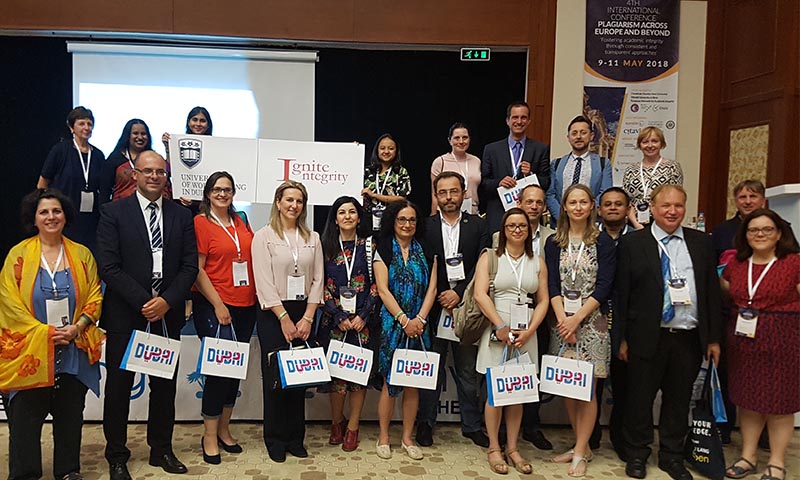
Having researched this area for 15 years now, I have found that “thinking integrity” creates opportunity, helps reform practices and leads to best practices. Keeping integrity central to everything that a higher education campus does paves way for ensuring the right values are instilled in the students that graduate.
The foremost step towards building a culture of integrity is to review policies and update them. Policies are the backbone of a campus, shaping the rules and regulations, managing expectations. It is crucial that universities value their policies, ensure they follow industry benchmarks and most importantly are educative, not punitive.
Having a policy that is not implemented is obscure and ineffective. It is vital the universities follow this with appropriate, proactive actions, rewards and recognition. This begins with training faculty on the policy, rules and regulations. It includes ensuring faculty understand the role of innovative assessment design to weed out misconduct and ends with focus on students, training them when they enter university so that they are able to overcome any lack of prior practice, understand the rules, seriousness of the need for integrity and accept that they should strive to be ethical in their conduct.
Regular awareness programs, research colloquiums, funding for research are some ways to ensure integrity is a part of the conversation in classrooms, corridors, dorm rooms, at burger joints and board rooms.
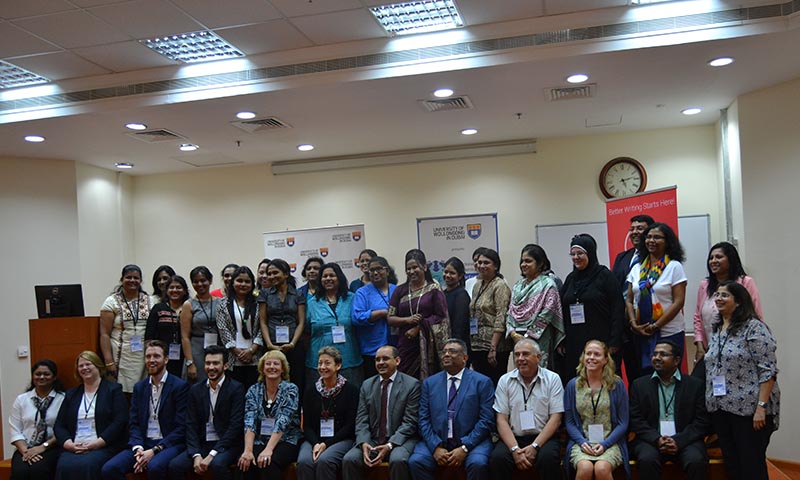
Middle East has been the rising star for higher education in recent years, with more and more international campuses opening their doors to welcome students. Parents and students have been becoming more inclined to pursue higher degrees in the region, than abroad. With the rise in student numbers, degrees being conferred and graduate job market growing, it is important to ensure that any dialogue surrounding higher education involves academic integrity.
At University of Wollongong in Dubai, where I have been a faculty for 20 years, we have been driving the conversation across the region. The only campus to have produced maximum research publications, organized and hosted two international conferences, and an active member of the European Network for Academic Integrity, we are a campus that champions integrity for our own student community, our faculty and staff and the greater society. From hosting the Week of Actions for Academic Integrity, to marking the International Day of Actions against Contract Cheating our campus has remained an advocate for academic integrity. With diverse population of both students and faculty coming from different cultures and educational backgrounds, the university, with its campus of the future, designs and delivers courses that engage students, opens dialogues and partnerships with industries and ensures integrity of assessments and knowledge imparted, innovating and trail blazing integrity practices in the region.
Academic Integrity is not a catchphrase to use as a marketing gimmick. If a university can establish a good policy, clear procedures, and implement detection and penalty, with proper support for students, it is well on its way to building a culture of integrity. But this is only going to be possible if the university is ready to recognise that academic misconduct is real and needs attention. Upholding integrity adds tremendous value to the degrees conferred, increases prestige, and produces graduates with attributes that make them responsible, contributing members of the society.
In the end, it is up to campuses to take the initiative, break the glass barrier and become champions of integrity. Let’s take those small steps, and make integrity the central topic of conversation today.
If you are a higher education student, faculty, parent, or campus looking to become a champion, contact the author!
About Dr Zeenath Reza Khan
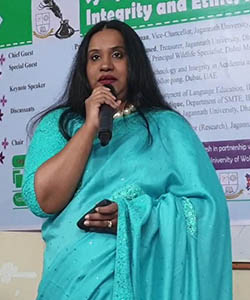
Fellow of Wollongong Academy of Tertiary Teaching Excellence, with over 60 publications, Dr Zeenath Khan has won the Teaching Excellence Award from UOWD in 2014, Turnitin Global Innovation Award 2015, Vice Chancellor’s OCTAL award from UOW in 2016 among others. Recently she was named among UAE’s 10 most influential educational leaders 2019 and won the Digital Leader Award in Education category from Khaleej Times and MIT Sloan Mgt Review’s Digital Leaders Forum, 2019. This year she was featured as one of the 2020 Global Educational Influencers for her tremendous support of the greater academic and student communities.




